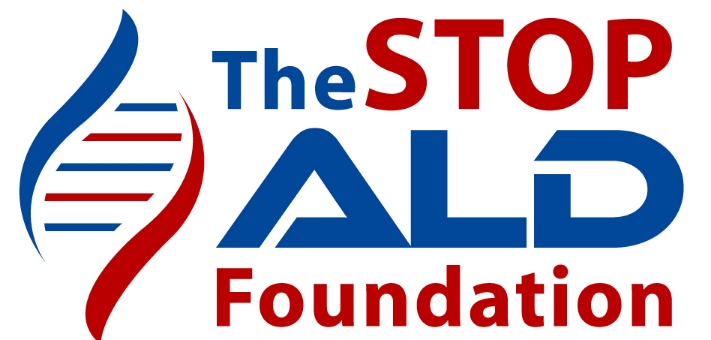Houston, TX -- November 5, 2009 -- The Stop ALD Foundation today applauded the investigators who are reporting in the current issue of Science successful results from the pioneering use of gene therapy for adrenoleukodystrophy (ALD), a potentially crippling and fatal brain disorder in young boys.
As an organization founded by families affected by ALD, we know too well the ravages that this disorder inflicts on its victims and the heartbreak it brings to those who love them, said Amber Salzman, president of The Stop ALD Foundation. We are deeply thankful to Drs. Cartier and Aubourg and the many other scientists and physicians whose achievement is reported in Science, and we look forward to continuing to work with them to build on their success. Their pioneering work in gene therapy brings hope to those stricken not only by ALD but many other serious diseases as well.
The Stop ALD Foundation has been involved in this gene therapy initiative since 2001 by providing direct funding and by bringing together parties in the US and Europe who provided critical scientific and biomedical contributions. Given the encouraging results reported in Science, the foundation will continue to stay involved, assisting in driving forward a larger, international study including U.S. patients. It is anticipated that this next study may be open to a more diverse ALD population, including adult men who suffer from the same genetic disorder.
The promise of gene therapy in ALD is that it will enable each patient to serve as his own stem cell donor, obviating the need to find matching donors and avoiding the serious risks and sometimes lethal side effects of stem cell transplantation. The paper in Science details the cases of two boys who underwent gene therapy at Saint Vincent de Paul Hospital in Paris. The boys were born with a genetic mutation that by the time of their hospital admission had already resulted in early brain lesions. Their therapy began with removal of some of their own bone marrow stem cells. These genetically defective cells were then corrected via a laboratory procedure whereby functioning genes were inserted. Last, the treated cells were injected back into the young patients. This therapy arrested the progression of ALD, and over two years later the boys conditions have stabilized. No adverse effects of the gene therapy have been noted to date.
I know the urgency of boys stricken by ALD and the pain of their parents, said Eve Lapin, a founding member of The Stop ALD Foundation. One of her sons died of ALD, and another is confined to a wheelchair as a consequence of graft versus host disease following a stem cell transplant. These gene therapy results are exciting, but they are just the beginning. Time is of the essence in finding the safest and most effective therapies. Every day more children become afflicted with ALD, and their chances of surviving depend on the success of trials such as this.
About ALD
Adrenoleukodystrophy (ALD) is a genetic disorder estimated to affect 1 in 18,000 people. Its most devastating form destroys the myelin sheath of the brain's neurons generally affecting boys between the ages of four and ten years. At first they show behavioral problems, such as withdrawal or difficulty concentrating commonly misdiagnosed as attention deficit disorder (ADD) or attention deficit hyperactivity disorder (ADHD). Gradually their symptoms grow worse and may include blindness, deafness, seizures, loss of muscle control, and progressive dementia. This relentless decline leads to permanent disability and death within two to five years from diagnosis. Accurate and early diagnosis is essential to an opportunity for effective therapy. The disorder can also affect adults, women as well as men, in which case it is known as adrenomyeloneuropathy (AMN). AMN tends to be less severe in adults than in boys, though some men also develop fatal demyelination in the brain.
About The Stop ALD Foundation
The Stop ALD Foundation is a registered not-for-profit medical research organization that drives research into new therapies and advances understanding of ALD. More information is available at www.stopald.org.
Citation: Hematopoietic Stem Cell Gene Therapy with a Lentiviral Vector in X-Linked Adrenoleukodystrophy. By Nathalie Cartier, Salima Hacein-Bey-Abina, Cynthia C. Bartholomae, Gabor Veres, Manfred Schmidt, Ina Kutschera, Michel Vidaud, Ulrich Abel, Liliane Dal-Cortivo, Laure Caccavelli, Nizar Mahlaoui, Vronique Kiermer, Denice Mittelstaedt, Cline Bellesme, Najiba Lahlou, Franois Lefrre, Stphane Blanche, Muriel Audit, Emmanuel Payen, Philippe Leboulch, Bruno lHomme, Pierre Bougnres, Christof Von Kalle, Alain Fischer, Marina Cavazzana-Calvo, Patrick Aubourg. Science, Vol. 326 No. 5954, November 5, 2009.
For press inquiries please contact:
Amber Salzman, Ph.D.
President, The Stop ALD Foundation
www.stopald.org
Ph: +1.610.659.1098
amber@stopald.org
Accompanying Videos
To view captions on the videos below:
- Start playing the video
- Click on the bottom right inverted arrow
- Click on CC (closed caption)


